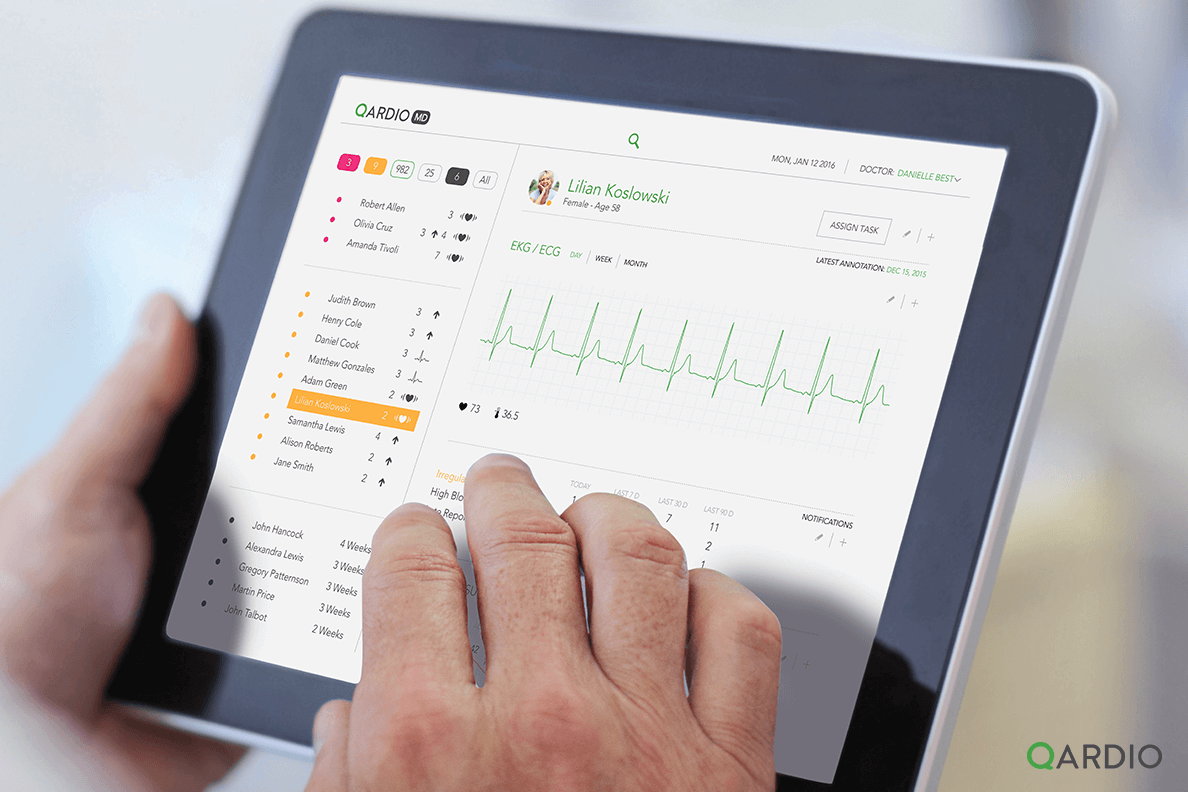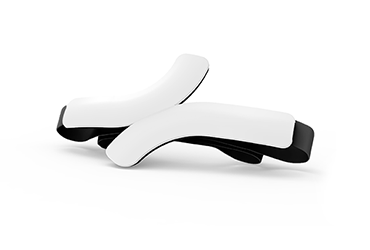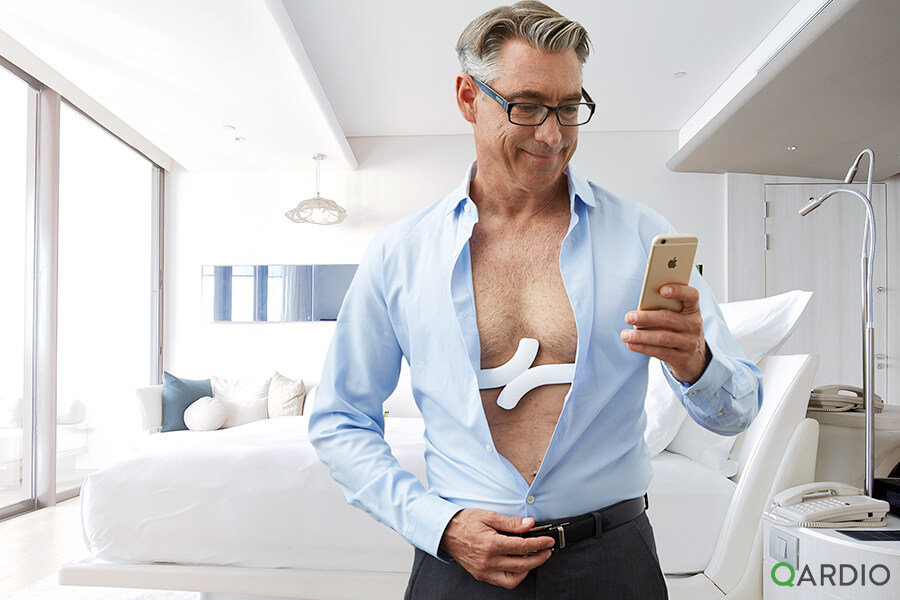If you ever wondered about your heart health, you probably came across an ECG/EKG monitor and perhaps wondered how ECG testing or monitoring works. Here we offer a simple introduction to ECG monitoring, its benefits and the best way to get a medical grade ECG scan done.
What is ECG/EKG?
ECG, also referred to as EKG, is the abbreviation of the word electrocardiogram – a heart test that tracks the electrical activity of your heart and records it on a moving paper or shows it as a moving line on a screen. An ECG scan is used to analyze the heart’s rhythm and detect irregularities and other cardiac issues that might lead to serious health problems such as a stroke or heart attack.
How does an ECG/EKG monitor work?
To get an ECG trace, an ECG monitor is needed to record it. As the electrical signals move through the heart, the ECG monitor records the strength and the timing of these signals in a graph called a P wave. Traditional monitors use patches and wires to attach electrodes to the body and communicate the ECG trace to a receiver.
How long does it take to do an ECG?
The length of an ECG test varies depending on the type of the test being performed. Sometimes it can take a few seconds or minutes. For longer, more continuous monitoring there are devices that can record your ECG for several days or even a week or two.
What’s the most lifestyle friendly way to monitor ECG?
As traditional ECG recorders and holter monitors require intrusive skin preparation, professional fitting in the doctor’s office plus the use of wires or patches, they are not easy or comfortable to wear long term. Qardio has designed the world’s first ECG/EKG monitor that doesn’t require wires and patches, can be used at home and is gentle to your skin. It works with your iPhone or iPad and is worn comfortably under your clothes the same way you would wear a fitness heart rate monitor.
If you are interested in seeing what the future of a ECG/EKG monitoring looks like, see our wearable ECG monitor QardioCore and how it changes the way we track our heart health.




